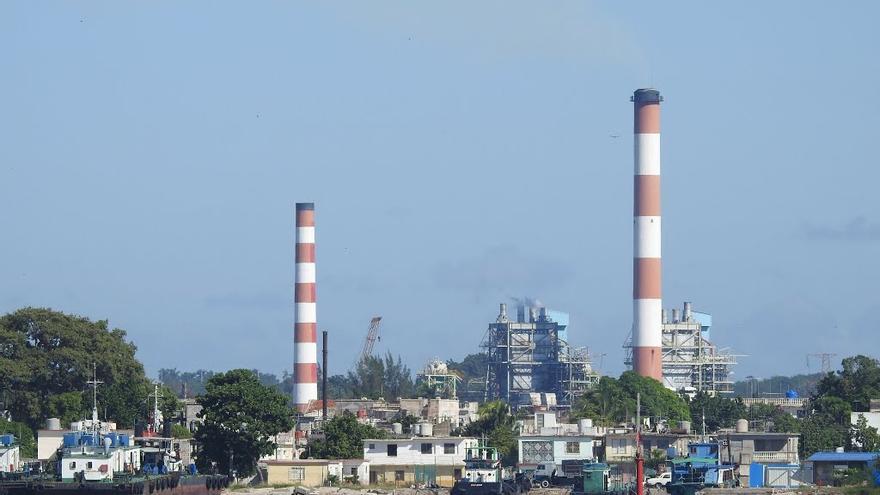
![]() 14ymedio, Reinaldo Escobar, Havana, 18 June 2019 — Cuban president Miguel Díaz-Canel’s recent speech at the Congress of Cuban economists recalls that old perestroika joke that showed Mikhail Gorbachev driving the car of Soviet socialism. Each time the taillights indicated that it would turn to the left it ended up turning to the right.
14ymedio, Reinaldo Escobar, Havana, 18 June 2019 — Cuban president Miguel Díaz-Canel’s recent speech at the Congress of Cuban economists recalls that old perestroika joke that showed Mikhail Gorbachev driving the car of Soviet socialism. Each time the taillights indicated that it would turn to the left it ended up turning to the right.
Popular political terminology uses the term ‘timonazo’* to describe that sudden and surprising act of changing course. In this case, the sudden turn of events focuses on the idea that “you have to jump to a new moment and know that the plan will not come from above.”
The president himself described the measure as “bold and very revolutionary” and added that it demanded “objectivity, realism and conscience.”
Those who have patience to study the final documents of the last Communist Party Congress, in particular the conceptualization of the Model, the Guidelines and the 2030 Development Plan, will find that socialist planning is defined in all of them as “the fundamental component of the system of management of economic and social development” that must combine “its centralized nature with the decentralization and autonomy required in the intermediate and grassroots instances.”
This tongue twister is supposed to be the master key that opens all doors and, as established in the verse with which Fidel Castro defined the concept of revolution, it is about making sense of the historical moment to change everything that must be changed.
Since Raul Castro rehearsed, in companies led by the military, what was ultimately called “the improvement of the business system” the attempt has been made to extend the experiment to the rest of the economy, which means granting new powers to the directors of the ’productive entities’. But it had to be done step by step, gradually and “defining the limits with precision in order to achieve companies with greater autonomy.”
The idea that the plan will not come from above can mean taking a stand in the most critical (and masked) internal discussion of the socialist system: How to define the degree of representativeness of the State as an intermediary between the workers and the ownership of the means of production. Half a century ago, a discussion just like that one ended the tanks of the Warsaw Pact rolling into Prague.
It was Alejandro Gil, Minister of Economy and Planning, who announced in the Congress of Economists the good news that starting next year, in order “to propitiate with objectivity and intentionality, as far as possible,” it will be “the workers who design the plans of their companies.”
What no one has explained is how a measure of this nature, which according to Díaz-Canel has been “demanded for years by the workers,” can match its final results with the ambitious forecasts of the 2030 Development Plan, designed with brutal verticality from the top of Olympus.
Maybe we are in the presence of a new version of what in the 90s was baptized as a Special Period in Times of Peace. At that time it was argued that the basic laws of socialism would be put on hold and that, for a time, the market would be partially liberated to save the conquest of the Revolution. Officially, this provisionality has not been terminated, among other things because the Soviet Union has not been resurrected and because they have not wanted to renounce the irreversibility of the system.
At first glance, the solution that is now publicly proposed is to give workers the power they have never had. Paradoxically “the criminal action of imperialism” with the resurgence of economic restrictions may have influenced these ’revolutionary solutions’ with no clarification regarding whether they are provisional or final.
The most pessimistic think that this ‘timonazo’ is another misleading ignition of false indicators to once again make us believe that “now we are going to build socialism,” but which, in reality, only underlie the purpose of staying in power.
The question is whether there is room for optimism.
*Translator’s note: “Timon” means tiller or steering wheel. “Azo” is a word ending that suggests a ‘hit’ or a ‘blow’.
_________________________________
The 14ymedio team is committed to serious journalism that reflects the reality of deep Cuba. Thank you for joining us on this long road. We invite you to continue supporting us, but this time by becoming a member of 14ymedio. Together we can continue to transform journalism in Cuba.
